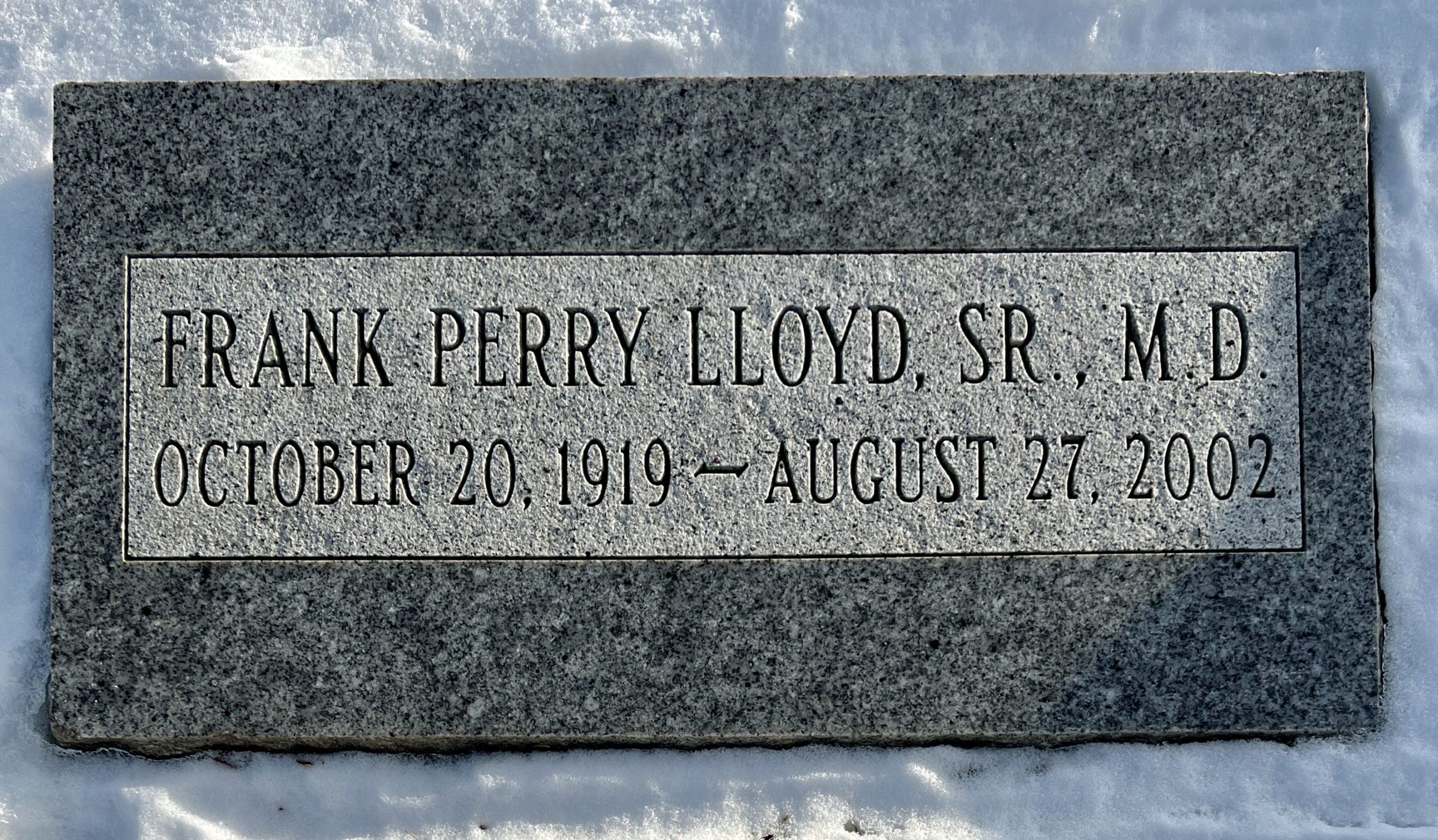Frank Perry Lloyd, M.D.
Frank Perry Lloyd, M.D.
(October 20, 1919 – August 27, 2002)
Dr. Frank Lloyd served many roles in Indianapolis. He was a prominent doctor, medical researcher, and the first African American president of Methodist Hospital. He was also an effective civic leader that helped transform Indianapolis to major league status.
Born in South Carolina in 1919, Dr. Lloyd graduated from Howard University School of Medicine in Washington, D.C. He served as a Rockefeller Fellow at Columbia Presbyterian Medical Center in New York City, teaching at Columbia University. He moved to Indianapolis with his wife Daisy (more about her next month) and their four children in the 1950s where he established his medical practice delivering babies and doing research in gynecology and obstetrics. He was on the staff of Wishard, Methodist, and St. Vincent Hospitals.
 In 1963, Dr. Lloyd took a position as Director of Medical Research at Methodist, leaving his medical practice to devote more time to his new duties and to his increasing civic activities. Concerned about the lack of a radio station serving the Black community, he laid the groundwork for WTLC in 1967 and owned it from 1969 to 1981. He also led the development of Midwest National Bank, formed in 1972 to help Blacks get mortgage and business loans not available to them at other banks. Dr. Lloyd was one of the founding members of 100 Black Men, for mentoring young African American men. The development of White River State Park was particularly close to his heart and the Visitor Center there was named in his honor in 2003.
In 1963, Dr. Lloyd took a position as Director of Medical Research at Methodist, leaving his medical practice to devote more time to his new duties and to his increasing civic activities. Concerned about the lack of a radio station serving the Black community, he laid the groundwork for WTLC in 1967 and owned it from 1969 to 1981. He also led the development of Midwest National Bank, formed in 1972 to help Blacks get mortgage and business loans not available to them at other banks. Dr. Lloyd was one of the founding members of 100 Black Men, for mentoring young African American men. The development of White River State Park was particularly close to his heart and the Visitor Center there was named in his honor in 2003.
In 1981, Dr. Lloyd became the first African American President and CEO of Methodist Hospital, serving until 1988. He led the institution through an era of major expansion, including pioneering the state’s first adult open-heart surgery in 1965, then the use of an artificial kidney in 1966, and kidney transplants in 1972. Before his health failed him in 1996, he remained active on many boards.
Sam Jones, then the president of the Indianapolis Urban League, summed him up this way on Lloyd’s death in 2002: “He was a giant among men, not just African American men, but a giant among men, period.”
Location: Section 88, Lot 3; GPS (39.8189907, -86.1765674)

